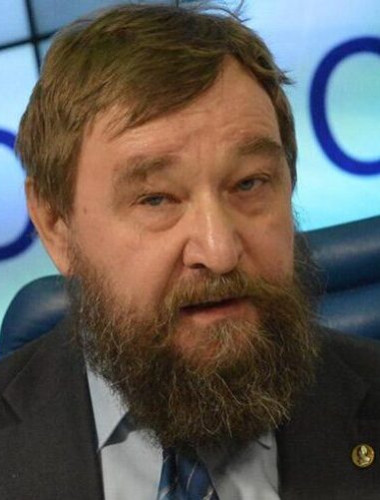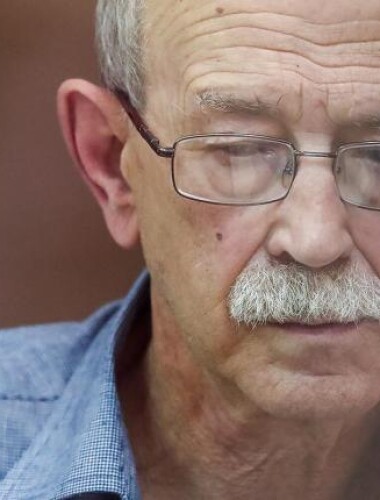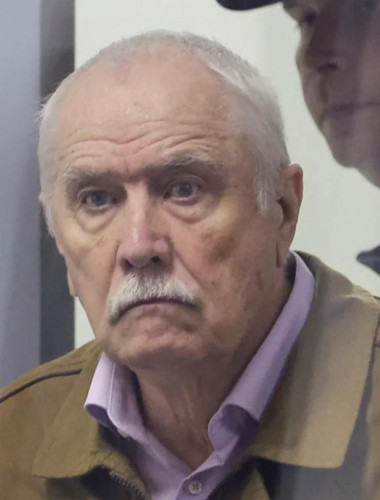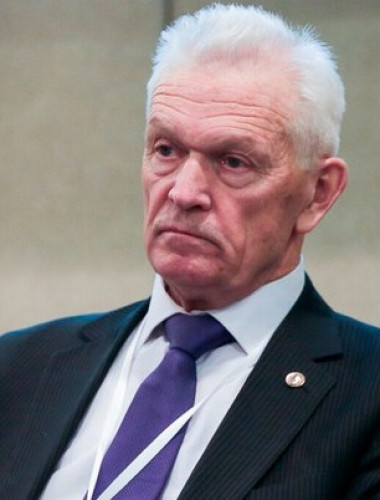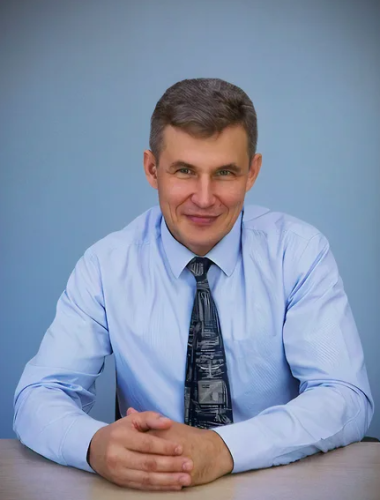“We Will Imprison This One and Buy That One.” Why Are Scientists Being Persecuted in Russia
The main task of the special services is to intimidate and divide the scientific community. They do not care about anything else

“He said that he does not plead guilty, because he did not commit any crimes, he never even thought of betraying his Motherland,” recalled the lawyer of physicist Anatoly Maslov, recounting his final statement in May 2024. A few days later, the 77-year-old scientist was sentenced to 14 years in a high-security prison on charges of state treason.
Over the more than three years of the war, the number of criminal cases against scientists in Russia has increased, notes T-invariant, a publication that writes about the life of the Russian scientific community. According to its data, from 2022 to the end of March 2025, 89 people faced persecution: 64 scientists, 18 students and postgraduate students, and seven teachers. Criminal cases were opened against 41 of them, administrative charges were brought against 29, and 19 were dismissed.
Administrative pressure on scientists is increasing, a researcher of repressions against scientists, who requested anonymity, explains to IStories. In addition to fines and dismissals, the authorities can declare a scientist a “foreign agent,” which means a ban on teaching in Russia and exclusion from the public sphere.
As for criminal cases, two large groups can be distinguished here: cases of state treason and “economic” cases. The latter began to appear en masse after the start of the war.
How treason is prosecuted
Persecution of scientists for treason has long been selective. Everything changed when the FSB began to open cases against hypersonic specialists who participated in the Transhyberian project in 2011–2013, a joint project with the Belgian von Karman Institute for Fluid Dynamics. More than a dozen people have already become defendants in the “hypersonic case.”
The full-scale war in Ukraine has not affected the persecution of scientists for treason, the human rights project Department One told IStories. At the same time, the overall increase in the number of such cases over the past three years is significant: from 1997 to December 15, 2024, at least a thousand such cases were opened, 792 of them after the start of the war.
This is how cases of state treason against scientists emerge.
Many research institutes have curators assigned from the security services, and this practice has expanded significantly in recent years, said journalist and author of books on the security services Andrei Soldatov (his father, doctor of physical and mathematical sciences Alexei Soldatov, was sentenced last year to two years in prison on charges of abuse of power). Their task is to look for spies and “collect compromising material in case the leadership needs to do something with this enterprise.” When a curator is asked for compromising information, for example, on the head of a research institute, he “will come running with a folder, and the head will start having problems.”
Then a large investigative team arrives at the research institute and starts “targeting” the scientists, says Dmitry Zair-Bek from Department One.
Scientists are often charged with collaborating with China because it is more convenient for FSB officers: in recent years, Russian scientists have collaborated little with Western countries, while nothing much has changed with China. For example, one of the defendants in the “hypersonic case,” the director of the Institute of Theoretical and Applied Mechanics (ITAM) of the Siberian Branch of the Russian Academy of Sciences, Alexander Shiplyuk, received 15 years for transferring secret data to China. However, most likely, the real reason for his persecution was his participation in the Transhyberian project.
When the third ITAM employee was arrested in the “hypersonic case,” their colleagues in an open letter wrote that the scientists suffered for presentations at international seminars and conferences, participation in international projects, and publications in journals. In these cases, the scientists could have been helped by a conclusion about the absence of state secrets in their materials. This document is issued by the first department of the research institute before any trip to a conference. “All hypersonic specialists coordinated their external contacts with expert commissions on external access. They acted strictly according to regulations. But FSB investigators ignore the rules established in scientific organizations,” says the editor-in-chief of T-invariant Olga Orlova.
This is how the FSB solves the problem. Investigators pressure those who issued the expert opinion, forcing them to confess that they did so without studying the materials or having succumbed to persuasion. “They grasp at the versions offered by the investigator and crawl away, hoping they won’t be touched,” said the son of Viktor Kudryavtsev, the first defendant in the “hypersonic case.”

After that, the materials are sent for a new examination; the FSB chooses the experts for it themselves and always gets the desired result. As a rule, military engineers act as experts; they can classify even information from textbooks as secret. “Hypothetically, the multiplication table was used in creating a presentation, and also in creating the Burevestnik missile. Accordingly, the same technologies were used,” explains Evgeny Smirnov from Department One.
When enough material is gathered on the “targeted” scientist, the most important stage for the special services begins — “realization.” On this day, searches are conducted in several locations (home, work, etc.), the defendant is detained, taken for interrogation, and then to court, where a pre-trial restraint measure is chosen. “If this doesn’t work out, the taste of victory isn’t the same. It is imperative to detain and arrest,” says Ivan Pavlov, founder of Department One.
Most of those persecuted for treason are ready to write to Putin: “Comrade Putin, a terrible mistake has occurred”
Olga Orlova
editor-in-chief of T-invariant
It is impossible to prove one’s innocence to the investigator. Here is what physicist Vladimir Lapygin, sentenced in 2016 in the “hypersonic case” to seven years and released on parole in 2020, said: “There were models tested in wind tunnels, resembling in shape either missile warheads or the shapes of missile fairings. The shapes themselves are not secret. The investigator says to me: ‘Well, this is the warhead of a missile!’ I took a pencil and explained: ‘Here’s a pencil — it’s not a secret, not classified, and not a weapon. But if I stick it in your eye, it will be a weapon. But I’m not sticking it in. Therefore, the pencil does not fall under secrecy.’ The fact that the missile’s fairing is elliptical in shape does not make the ellipse itself a secret shape.”
Scientists are also being pressured to cooperate with the investigation, in particular, to testify against their colleagues. However, they rarely agree to cooperate. Firstly, scientists are confident in their innocence, and secondly, they are most often loyal to the authorities, explains Olga Orlova: “Most of them are ready to write to Putin: ‘Comrade Putin, a terrible mistake has occurred.’” There are opponents of the government among scientists, but they are tried not for treason, but under other articles. It is possible to understand whether a person has made a deal with the investigation by the sentence they receive. The minimum sentence for treason is 12 years; in the case of a deal the accused can receive less than the lower limit — 5–7 years.
Treason cases are heard behind closed doors, so their details are usually unknown.
How they persecute through “economic” cases
Identifying patterns in “economic” cases is not so easy: scientists are tried under different articles, T-invariant notes. For example, supercomputer developer Vsevolod Opanasenko received five years for fraud and has already been released on parole, Alexei Soldatov received two years for abuse of power, recently cases were brought against four rectors related to the enrollment of foreigners in universities, involving articles on abuse of office, forgery of official documents, and organizing illegal migration.
“With ‘economic’ cases, everything is very complicated, because it is unclear where this is persecution and where the rector really took too much,” says an anonymous researcher of the persecution of scientists.
There are cases when fraud cases are initiated based on denunciations from colleagues of scientists. The most famous of these is the case of physicist Oleg Kabov, who received a five-year suspended sentence for fraud (the prosecution appealed the verdict). A former employee of his laboratory filed a denunciation against Kabov, and the case was pursued by an FSB officer who had also previously worked for Kabov and had a conflict with him. The case itself is full of absurdity, it is described in detail here.
“We know for sure that some ‘economic’ cases are instigated by the scientists themselves, for example, the Kabov case. It is impossible to say for sure about others, but it cannot be ruled out either. The repressive machine has been launched, and people have started using it,” the expert believes.

Are opposition scientists being persecuted?
Yes, the most widespread case concerns scientists who signed the anti-war letter. FSB officers conducted interviews with its authors, criminal cases were initiated against them, administrative protocols were drawn up, they faced funding problems, some were forced to leave Russia, some lost their jobs.
There are other “opposition” cases. The most famous is the persecution of Sergei Abramov, a corresponding member of the Russian Academy of Sciences and a leading specialist in supercomputers. He is accused of financing extremism; the investigation believes that the scientist transferred seven thousand rubles to FBK [Anti-Corruption Foundation]. However, the transactions do not indicate that Abramov sent the money specifically to FBK; it could have been any NGO. The case is also notable for the fact that the scientist was sent for a two-week examination to the Yaroslavl Psychiatric Hospital.
Like many defendants in treason cases, Abramov says that he is not an opponent of the government: “There is a narrative in my case: ‘He was dissatisfied with the current government and state policy.’ Guys, I was shaping it!”
Why are the authorities persecuting scientists?
At the grassroots level, the persecution is easy to explain: for security officials, it is an easy way to solve a case, distinguish themselves, and climb the career ladder. This is especially true of treason cases against scientists involved in hypersonics: investigators report on each such case to Vladimir Putin, said Evgeny Smirnov from Department One. Putin began talking about weapons that would operate at hypersonic speeds back in 2005, and in 2018, in his famous address to the Federal Assembly, he already threatened the West with these weapons.
“It’s like they struck gold. It seems they started with people already under arrest and then looked at who they were working with,” says an anonymous expert about the “hypersonic case.”
In a broad sense, the task of the special services is to intimidate and divide scientists. And they are succeeding.
Sowing fear is achieved, first of all, by the unpredictability of repression, explains Olga Orlova from T-invariant: “The main effect, which has an absolutely paralyzing effect on everyone, is the non-systemic nature of the persecution. There is no concept. Because as soon as a concept appears, the scientist can adjust their behavior depending on the government’s attitude, the FSB’s requirements. But the point is precisely that scientists do not understand this.”
This tactic allows the security services to control scientists with minimal resources, Orlova continues: “Their method is exceptionally effective because it allows them to keep the entire scientific community in fear with little effort. Therefore, there are practically no public objections to this new practice — everyone understands that they could be the next accused.”
Another innovation of the modern FSB is that the cases of scientists receive very little publicity. Of the federal media, Kommersant and RBC might write about it, but there is complete silence on television. For example, on Channel One’s website, there are two articles about Viktor Kudryavtsev’s case from 2018, but there are no articles at all about the recent cases of Oleg Kabov and Sergei Abramov. “And if, for example, the FSB officers in Ivanovo arrest someone, it’s not reported anywhere. People think that this only happened to them, that it’s a terrible accident or the person was just unlucky. The scale of the repression is deliberately hidden, nothing is commented on, there are no show trials.”
However, the secrecy of the persecution does not negate its cruelty. Scientists are not only given long sentences, but also no allowances are made for their advanced age and poor health. The most egregious case is that of physicist Dmitry Kolker. Despite having stage four cancer, he was taken from the hospital and sent to a pre-trial detention center, where he died three days later. Kudryavtsev died before the verdict, and the president of the Arctic Academy of Sciences, Valery Mitko, died under house arrest.

There is little hope that the leadership of Russian science will defend their colleagues. The Ministry of Science and Higher Education is now pushing for a law requiring international projects to be coordinated with the FSB. “It’s an attempt to make dealings with the FSB at least somewhat predictable. No other agency does this — nowhere else do people go begging to security services saying, ‘Let’s run everything by you.’”
The persecuted scientists almost always work in academic science and are not connected with military development or production. But the authorities do not consider at all that their actions could harm science, including military development, believes Olga Orlova: “This generation of FSB officers was formed in the logic of ‘we will always buy everything,’ including technology. The principle that Putin formulated as “grab and snatch” permeates everything. We will imprison this one, and buy that one.”
Why are the authorities not afraid of dismantling science?
Orlova is certain that the treason cases themselves have nothing to do with protecting the country’s defense capabilities; they are merely a desire to intimidate and control the scientific community. The fact that convicted scientists are not being organized into sharashkas, as was the case during Stalinist repressions, is further proof that the special services are indifferent to the fate of science.
An anonymous source for IStories believes that the scale of the current repression is not large enough to destroy science: “It’s enough for intimidation and division, but it’s not enough to destroy science.” Most of the scientists leaving the country due to repression are young people, while science is made by mid-career scientists who have already achieved a lot in Russia.
“If Shakespeare hadn’t written his tragedies, no one would have written them. And if Einstein hadn’t derived the formula E = mc², others would have derived it,” explains the researcher, outlining the logic of the Russian authorities: “Now we’ll imprison the old stumps, and young guys will come who will make hypersonic weapons just as well for us.”
